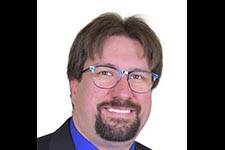By Robert Myers
As we have debated the Permanent Fund Dividend over the last few years, we have talked about the fiscal impact to the state, alternate revenue options and the distributional impact to residents. But one thing that we have not spent much time talking about is the very foundational issue that underpins the whole program: Who owns the oil? As the source of the money for the Permanent Fund and the resulting dividend, both the origin and the future of the program hinge on that question. Due to various legal and historical reasons, there are really just two possibilities. Either the state owns the oil or the people own the oil with the state managing it in trust.
For the last few years, the state has behaved as if it owned the oil. The royalties and earnings are its to do with as it sees fit. The Permanent Fund is effectively the state’s retirement account. That’s why we’ve moved from 90% of our government funded by oil to 65% of it funded by the Permanent Fund. But there are wider impacts for that view.
Plenty of countries around the world assert ownership of their oil, and the pattern that they follow is common enough that economists have a name for it: the petrostate. Some of the most common results from the petrostate are fiscal rigidity, a bloated budget, public corruption and an undiversified economy. Having that huge pot of money available to the state hoards the wealth of the state away from the productive, private economy. It creates a huge temptation to elected officials and any group that wants to make their money off the public treasury
All of this sounds very familiar to Alaskans. It also sounds familiar to Venezuelans back in the 1980s and 1990s. While we are a state and not a country, we are headed down a similar path with the same strife, failure and economic uncertainty ahead of us.
But if we want a different path, we should look at who owns the oil. People with mineral rights get royalties, and that is what the PFD stands in for. We need to clarify that the state manages the oil in trust, and that makes the Permanent Fund less like a retirement account and much more like my kids’ college accounts. My name is on the accounts as the responsible adult, but it is not my money. It is their choice how best to invest in their futures.
The PFD is the same. It removes a portion of the oil revenues from the state’s control and puts it back into the individual’s control. It allows us as individuals to invest in our economy rather than waiting for the state to decide which projects make the most political sense to invest in.
Once we settle the question of the PFD, we can argue over taxes and spending, just like every other state does. But before we get to that step, we should answer a more basic question: is Alaska going to move forward based on the actions and judgements of our individual citizens or by waiting for government to look out for us and make our decisions for us? If the state owns the oil and other mineral wealth of our state, we will constantly be at the mercy of the political winds. If the people own the oil and are able to receive the wealth from it, we will be able to create the capitalist system that will allow individuals to make the best decisions and diversify our economy over the long term.
We have to settle that debate first. With the recent court rulings, the only way to settle that debate fully is with a constitutional amendment which the Legislature will have a chance to debate in the upcoming special session. The recent public testimony to the fiscal policy working group was overwhelmingly in favor of the PFD. As the rightful owners of the oil and the fund that results from it, but that is the public’s right. In accordance with that testimony and status, I intend to vote for a solution during the special session that enshrines the ownership of our resources by the individual in our constitution.
• State Sen. Robert Myers, R-North Pole, is the senator for District B in the Alaska State Legislature. Columns, My Turns and Letters to the Editor represent the view of the author, not the view of the Juneau Empire. Have something to say? Here’s how to submit a My Turn or letter.

